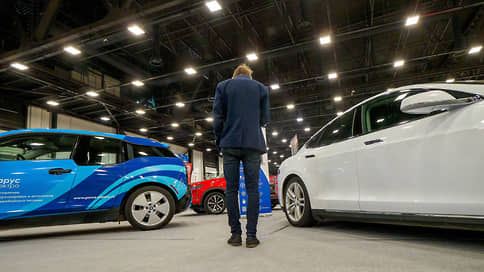Leaseholders are waiting for the thaw
[ad_1]

The volume of new leasing business in Russia in 2022 decreased by 13% year-on-year to RUB 1.98 trillion. At the same time, the total leasing portfolio grew by 5% over the year, amounting to 6.75 trillion rubles. Market participants look at 2023 with moderate optimism, expecting a growth in new business volumes within 10%, primarily due to special equipment and machinery for the construction industry
“Kommersant” got acquainted with the study “Expert RA” on the leasing market in 2022. According to the agency, the volume of new business in the industry decreased by 13%, to 1.98 trillion rubles. The fall at the end of the year was shown by both the corporate and retail segment – by 31%, to 354 billion rubles. (the lowest value since 2019), and by 8%, to 1.626 trillion rubles, respectively. The number of transactions in the market decreased for the first time since 2015, amounting to 340 thousand.
Air leasing (by 61%) and leasing of sea and river vessels (by 46%) showed the largest drop in new business volumes. The only support for the corporate segment was the leasing of railway transport, which became the main means of exporting natural resources. The volume of new business in the segment decreased by only 1%.
In leasing retail, a decrease in new business was shown by the passenger car segment (by 27%) against the backdrop of a disruption in logistics and the withdrawal from the Russian market of European brands familiar to consumers, as well as equipment for oil and gas production, which is highly dependent on the supply of imported equipment (by 63% ). Growth was observed in trucks, special and construction equipment. They quickly shifted to supplies from China, the construction was also stimulated by state support measures, Expert RA explains.
An increase in the average transaction amount is noted, which, in addition to inflation, is due to an increase in the cost of leasing items due to an increase in the shortage of equipment against the backdrop of the geopolitical crisis, explains Anatoly Perfilyev, junior director for banking ratings at Expert RA. The volume of the leasing portfolio at the end of 2022 increased by 5%, to 6.75 trillion rubles.
In 2023, Expert RA expects an increase in the volume of new business in leasing within 10%. Growth will continue to provide retail segments – cars, trucks and construction equipment. The corporate segment will continue to stagnate.
The leasing companies surveyed by Kommersant are waiting for the implementation of the demand deferred for 2022, the consolidation of Chinese analogues of cars and equipment in the market, and are also considering more niche and new segments for themselves. “Mostly pent-up demand has formed in the segments of transport and special equipment. The end of 2022 and the beginning of 2023 have already clearly demonstrated new trends in all traditional leasing segments to replace the departed brands,” says Guram Kudryavtsev, General Director of Rosbank Leasing. “Since the fourth quarter of last year, we have seen a recovery in supply and demand for truck tractors.” “In special equipment and agricultural machinery, there will also be a shortage of offers,” says Roman Valkov, head of digital sales channels at Alfa-Leasing Group of Companies. “New players from countries that have not previously entered our market will appear here.”
Market participants are also interested in segments of the urban infrastructure of large agglomerations, adds Maxim Kalinkin, CEO of Gazprombank Leasing. “In addition, we have begun financing the renewal of fixed assets in educational institutions and clinics, the modernization of heating facilities, post offices in remote regions,” he continues. “The real estate segment is also in the focus of interest.” During the period of transformation and adaptation to new conditions, small and medium-sized businesses (SMEs) have always been more active than large ones. And Interleasing will concentrate on providing SMEs with liquid transport and equipment, its commercial director Sergey Zharkov outlines the company’s plans.
But the main part of the players takes a more conservative approach, relying on those industries that have already shown stabilization in 2022 or in which they have many years of expertise.
[ad_2]
Source link





